Turkey’s post-coup purge and persecution makes no exception for children

Date posted: August 18, 2020
A post-coup purge in Turkey is continuing to take a huge toll on human life, making no exceptions for children. Mehmet Fatih, Selman, Eymen and Ali İhsan developed cancer after their fathers were arrested. Mehmet Akif’s leukemia, from which he had recovered, made a comeback when his father was arrested. Receiving dialysis three times a week, Azra Nur’s condition is getting worse by the day. There are also those who were unable to cling to life and succumbed to their illnesses.
As part of a purge after a coup attempt on July 15, 2016, the Turkish government dismissed more than 150,000 civil servants from state jobs and investigated almost 600,000 people, detaining or arresting half of them on trumped-up terrorism-related charges.
A database compiled by the Stockholm Center for Freedom reveals that no less than 183 people have succumbed to the purge for various reasons such as suicide, torture and denial of or belated medical treatment in prison, to name just a few.
Hundreds of others, robbed of their liberties on fabricated charges, stripped of their livelihoods, exposed to formal or informal discrimination and devoid of all hope that things will improve any time soon, have proven to be easy prey for mortal diseases such as cancer.
The persecution also hits children who have been caught up in the massive purge. Ahmet Burhan Ataç, an 8-year-old boy who lost his life to cancer while his father was jailed and his mother was standing trial, was one of them. He had grappled with bone cancer for almost two years, an illness he had developed at a time when his parents were sought by authorities on terrorism-related charges.
Ahmet Burhan, after having fought for almost two years to cling to life, finally succumbed to cancer on May 7.
His father, Harun Reha Ataç, was sentenced to 10 years’ imprisonment because he had worked at a student hostel affiliated with the faith-based Gülen movement, a dissident group designated as a terrorist organization and put in the crosshairs by Turkish President Recep Tayyip Erdoğan.
President Erdoğan accuses Fethullah Gülen, a US-based cleric and the spiritual leader of the movement, of masterminding the failed coup despite his categorical denial of any involvement, and deemed any connection to the movement on par with membership in a terrorist organization, thereby making Gülenism a crime by association.
Ahmet Burhan’s treatment in Germany was delayed because his mother, who had been released from jail pending trial on charges similar to those of her husband, was prohibited from traveling abroad, a ban authorities several times refused to lift despite repeated calls from human rights defenders.
Furkan Dizdar went through a similar experience. Furkan was to travel to Cuba for brain cancer treatment with his parents but returned from the airport because their passports had been canceled as part of the purge of members of the Gülen movement.
While his parents were trying to get the travel ban lifted, Furkan’s face became paralyzed, resulting in the loss of one of his eyes. He died on February 7, 2017, at the age of 12.
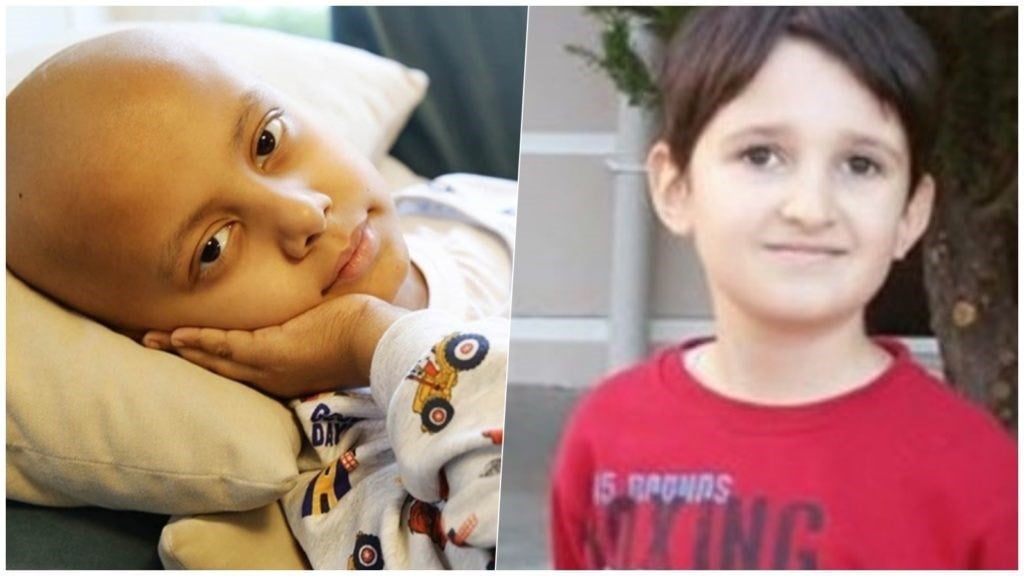
Ahmet Burhan and Furkan are not exceptions. There are other children who have fought cancer. They generally developed the illness after their fathers were imprisoned. There are also children whose cancer recurred after their fathers were arrested, although they had recovered earlier. According to the doctors, their fragile bodies are not equal to the sorrow and affliction caused by the persecution of their fathers.
The hands of imprisoned fathers are tied. They cannot be with their children and wives in their time of greatest need. Yet, the mothers’ situation is grimmer given that they have to take care of their sick children and provide for the family at the same time. In a sense, the mothers are punished along with the fathers.
However, according to a regulation on the execution of sentences, the sentences of prisoners whose first-degree relatives are seriously ill may be postponed for one year. But the authorities refuse to apply this regulation when it comes to Gülenists.
The fact that international courts and organizations do not agree with the Turkish government on its definition of terrorism and its accusations against members of the movement makes no difference. The government continues to disregard the findings and rulings of these bodies.
Indeed, the European Court of Human Rights and some UN bodies found on a number of occasions the arrest of Gülenists to be unlawful and arbitrary. In a recent ruling, a UN working group even declared that those with alleged links to the Gülen movement are being targeted on the basis of their political or other opinions, constituting a prohibited discriminatory ground. No matter what they say, the government is persisting in its Gülenist witch hunt.
The Stockholm Center for Freedom has compiled the following data regarding seven children struggling with a mortal disease in the absence of their fathers.
MEHMET AKİF GÖKDAĞ:
Mehmet Akif Gökdağ,13, had been diagnosed with leukemia two years before his father was put behind bars. He recovered after one year of treatment and had been going to the hospital only for routine medical checkups. However, after his father, Hasan Gökdağ, was detained on July 27, 2016 and arrested one week later on Gülenist charges, Mehmet Akif’s illness recurred.
His mother Sema had to see to the treatment of her son alone. She had to take her son from the Central Anatolian city of Konya to the neighboring capital of Ankara for a bone marrow transplant.
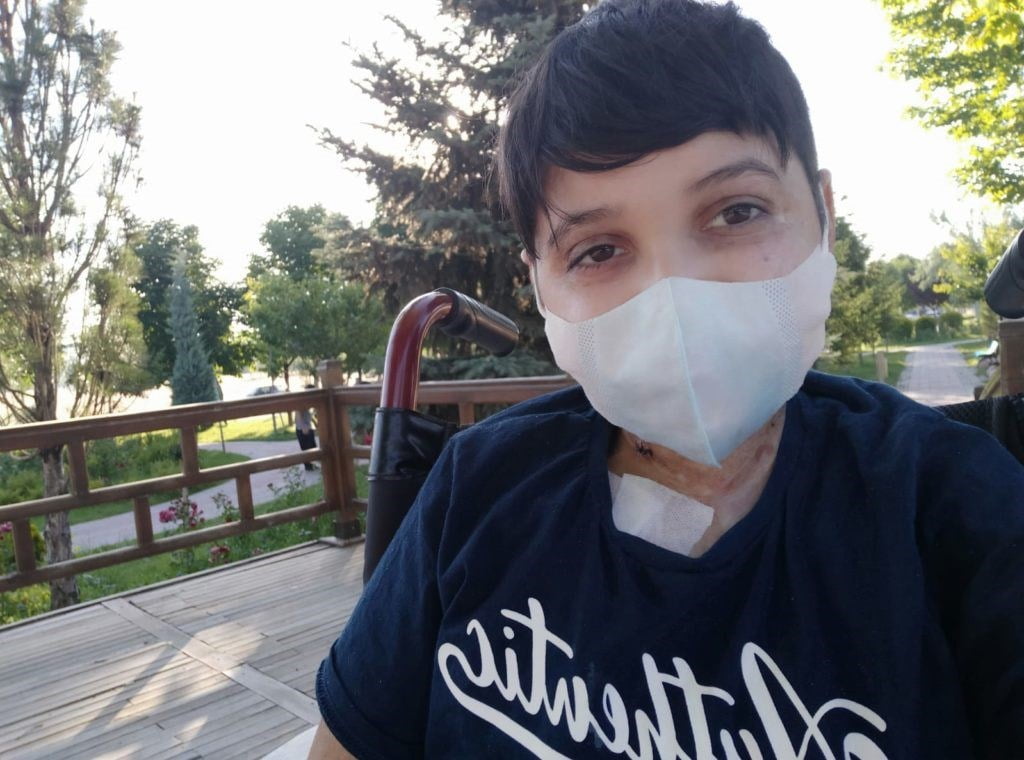
Doctors transplanted his mother’s bone marrow in Mehmet Akif despite the fact that his mother’s bone marrow was not compatible, and the doctors said Mehmet Akif had a 20 percent chance of survival.
In the meantime, Sema tried to secure her husband’s release from prison by invoking the regulation on the execution of sentences allowing for the postponement of prison sentences.
Sema and Mehmet Akif went together to the prison to meet with a prosecutor about the possibility of the father’s release. However, the prosecutor urged Sema to persuade her husband to inform on fellow Gülenists in return for his release. The prosecutor called the father, allowing Mehmet Akif to see his father there. After a one-on-one between the father and the prosecutor in which the latter repeated his offer — “Give me 10 names and leave here with your family” — Sema and Mehmet Akif left the prison without the father.
After the transplant Mehmet Akif’s body started to produce blood, but lesions also appeared on his skin. He could not move his arms and legs because of the lesions. Mehmet Akif has not been able to walk for a year now. They have to go to Ankara two days a week for treatment.
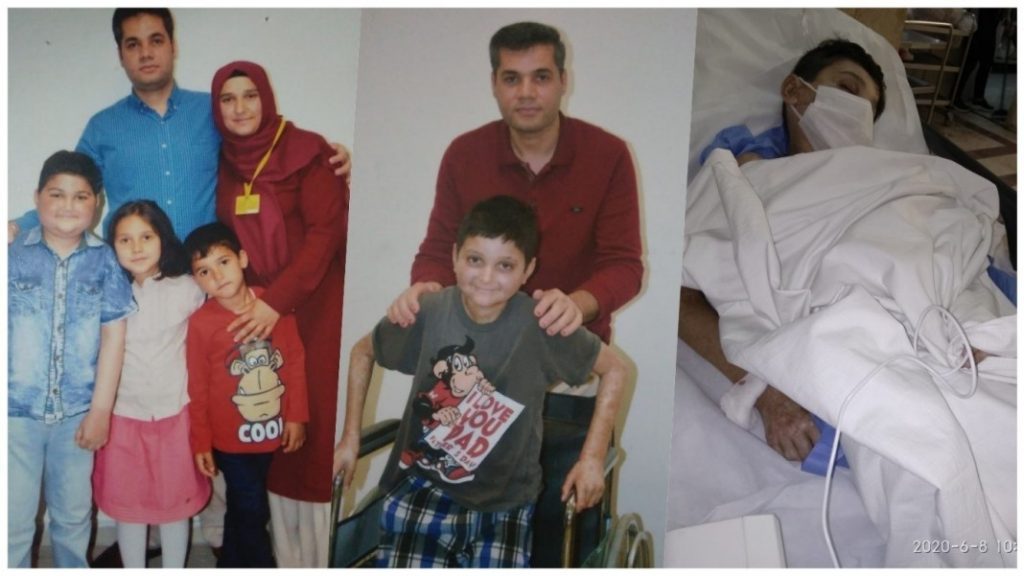
His father Hasan, who had been arrested in Konya and sentenced to seven years, two months in prison pending appeal, has meanwhile changed prisons four times, making the lives of Mehmet Akif and his mother more miserable since they had to travel to different cities to visit him.
“The success of cancer treatment is dependent on the patient’s mood. My son’s illness recurred because of his sorrow. I applied to social services, but they refused to help us because my husband is under arrest. A bag on my back and Mehmet Akif in my arms… We go every week like that to Ankara… I have no shoulder to lean on…” Sema said in explaining her feelings.
ALİ İHSAN BAŞER:
Ali İhsan Başer was diagnosed with leukemia on August 16, 2019. According to his doctors, he had suffered a severe trauma. He was two and a half years old when his father was arrested.
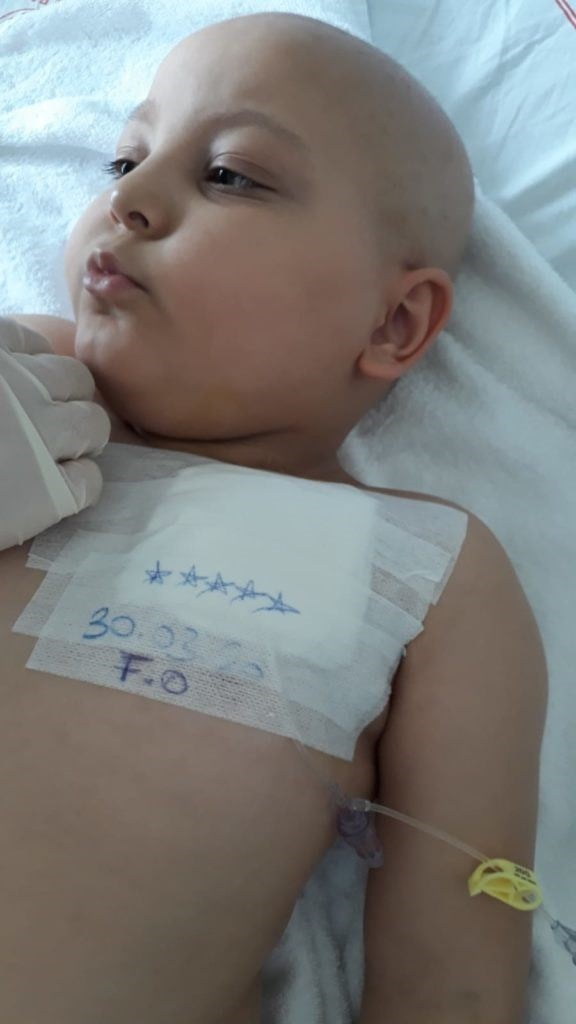
His mother Rukiye says he remembers everything about his father, of whom he is very fond. The police storming their home and taking his father away, the sudden deprivation of his father’s presence and the disappointments he suffered when he left the prison without his father after their visits proved to be too much for him. He could not forget his father, whose name he kept repeating even after his surgeries.
His father İsa Başer, a noncommissioned officer who was dismissed from the military, was arrested on November 7, 2017 based on the testimony of an informant and sentenced to six years, 10 months in prison on accusations of membership in the Gülen movement. His sentence has yet to be reviewed by the Supreme Court of Appeals.

MEHMET FATİH DEDEOĞLU:
Mehmet Fatih Dedeoğlu, 14, has been receiving treatment for lymphoma since June 1, 2020. In that short period of time, his body has become weak and fragile. He has lesions in his mouth due to chemotherapy.
His father, Salih Dedeoğlu, was arrested four years ago and sentenced to 12 years in prison on Gülenist charges based on informant testimony and membership in a Gülenist trade union and association as well as using a messaging application called ByLock. His sentence has yet to be reviewed by the Supreme Court of Appeals.
He has been allowed to visit his son only once during his incarceration.
Salih himself is sick, too. Blind in one eye, he also has only one kidney. He has implored the authorities to release him, saying that his son needs him during his treatment. He believes his imprisonment caused his son’s illness. His requests for release have been refused.
Mehmet Fatih’s mother Ayşe, who has two more children aged 3 and 8, feels helpless.
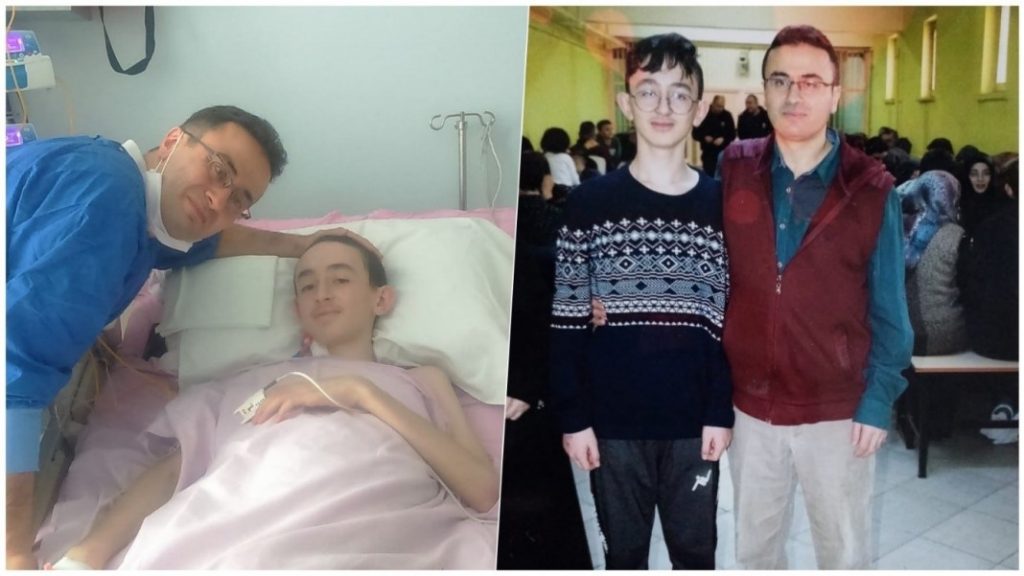
AZRA NUR AĞIR:
Azra Nur Ağır, 14, who was born with Jourbet Syndrome, a rare genetic disease, has been dependent on dialysis for nearly a year due to kidney failure. Her mother Nevin Ağır, who has two children, has taken care of Azra Nur Ağır for 13 years as if she were still a baby. Since her husband was arrested on July 24, 2016, she has been looking after her without her husband’s help.
Children with Jourbet Syndrome have low intelligence and perception. With treatment, their walking, speaking, vision and perception can be developed to some extent. Yet, the midbrains of these children do not work, making the homeostasis of the body dysfunctional. Their pupils do not sit in the middle of the eye, slipping left and right. In adolescence, kidney failure occurs. Azra Nur, who appears at first glance to be without problems, is in reality unable to meet her own needs because her muscles do not work. Her mother provides her personal care. According to her mother, Azra Nur’s disease has progressed considerably since her father’s arrest.
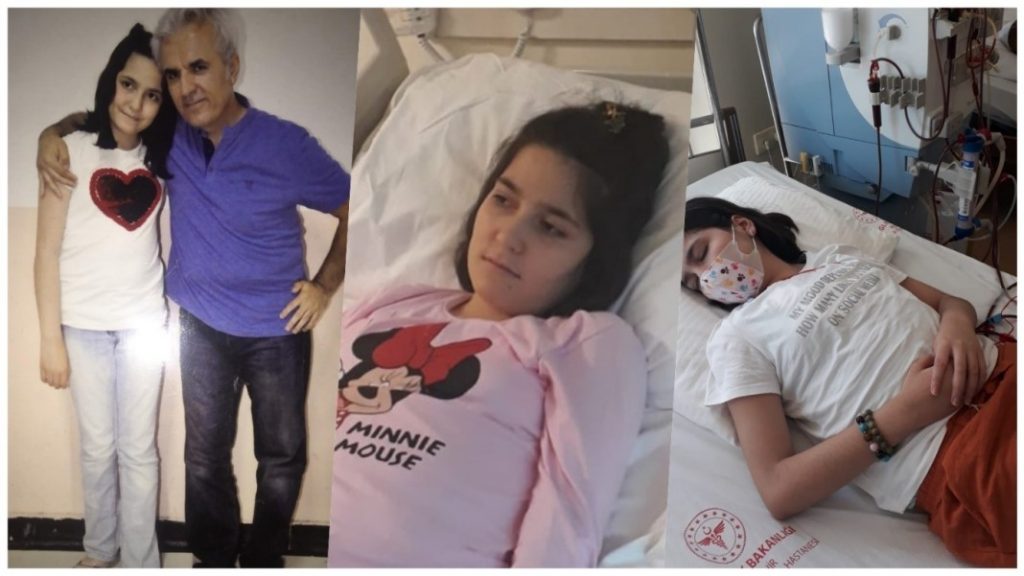
Her father, Mevlüt Ağır, has been in prison for nearly four years. He was sentenced to 10 years in prison pending appeal because he had worked as a teacher in a Gülen-affiliated preparatory school.
SELMAN ÇALIŞKAN:
Selman Çalışkan, 7, was diagnosed with brain cancer in June 2019. He has been grappling with this disease for a year now without his father. His mother, Emine Çalışkan, while taking care of her three children on the one hand, is also trying to financially support her husband, who has been imprisoned for 38 months, on the other.
Selman and his mother have traveled every week for the past year from the western Anatolian city of Manisa to neighboring Izmir for chemotherapy. They have taken these trips — over an hour’s drive one way — with the help of friends, who have been kind enough to give them rides back and forth from the hospital.
Yet, his treatment was terminated by his doctors two weeks ago because Selman did not respond to drugs brought from Cuba. Selman is now trying to cling to life at home.
His father, Rasim Çalışkan, a teacher who was dismissed from his job, was arrested on May 17, 2017 and sentenced to seven years, six months in prison pending appeal on Gülenist charges. He was able to see his son only once after he got sick. Emine Çalışkan says she feels helpless when her son asks, “Mom, when will my father come home?”
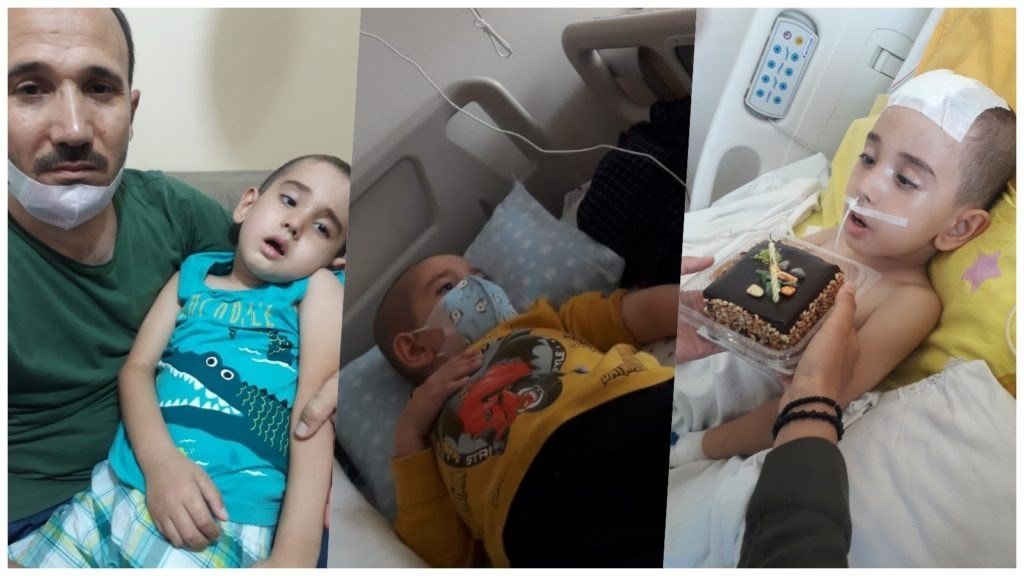
EYMEN KÜÇÜKAYDOĞAN:
Eymen Küçükaydoğan, 6, was diagnosed with leukemia in January 2019, one year after his father was arrested. His mother has been struggling to care for her son alone for one-and-a-half years. Eymen has had a very hard time without his father. According to his mother, he shuts himself in his room and cries, calling for his father. There are periods when he cannot walk and his body becomes extremely weak. Sometimes he vomits constantly, and his mouth and stomach are full of lesions.
Now he is continuing his treatment at home in the western Anatolian city of Afyon. His mother takes him to Ankara for medical checkups once a month.
Describing a day at the hospital where Eymen was receiving treatment, his mother said: “The hospital was allowing fathers to visit children undergoing treatment two or three times a week. I kept Eymen inside his room on those days, making sure he didn’t see the other children spending time with their fathers. They got really happy when they saw their fathers, laughing, playing with toys brought by their fathers, or eating special foods. We always remained in his room so he did not see the other children.”
Eymen’s father, a dismissed police officer, had gone to the courthouse to check on the status of his case when he was arrested by the prosecutor, in January 2018, as part of the Gülenist purge. He was sentenced to eight years, nine months in prison, and his sentence was upheld by the Supreme Court of Appeals in October 2019.
Another problem for sick children is visiting their parents in prison. Eymen has been able to go to the neighboring city of Isparta, where his father is incarcerated, only two or three times. “This is a serious problem,” says his mother, as he is subject to a body search. “Those children are very vulnerable. They have to mingle with the crowd there and subject themselves to an X-ray scan, which is very harmful to them.”
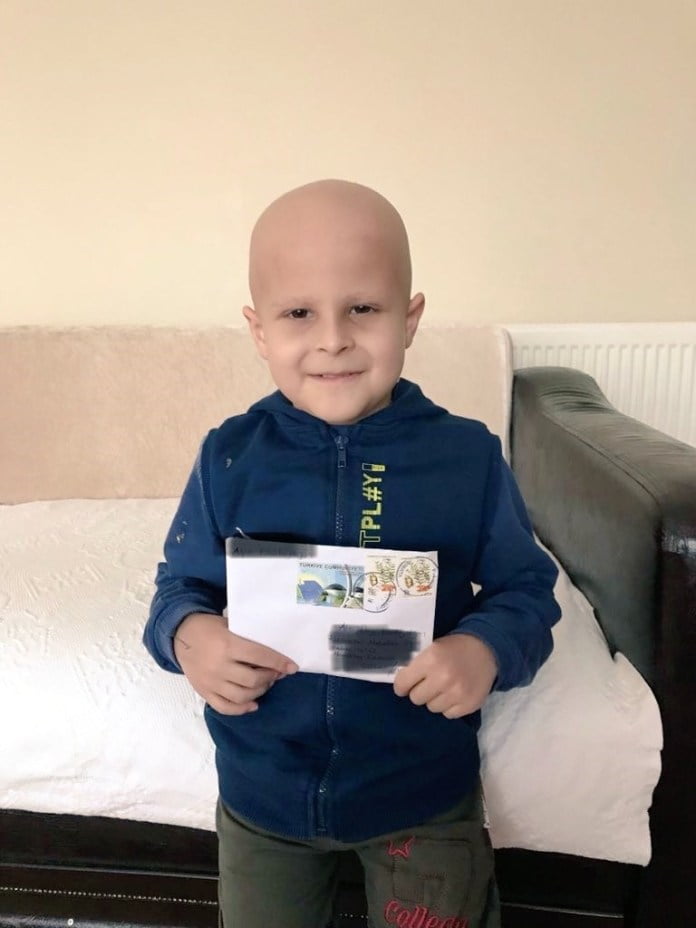
AKİF DAŞTAN:
Akif Daştan, 6, has been treated for leukemia since 2015. His parents were arrested almost simultaneously by a court on November 15, 2019 based on informant testimony and on the grounds of using ByLock. The judge did not even take Akif’s medical reports into account when arresting his parents. In their absence, the grandmother has been taking care of their only child, Akif.

Source: The Stockholm Center for Freedom , July 31, 2020
Tags: Child victims of Erdogan's persecution | Erdogan's Genocidal Treatment of Hizmet | Turkey |
























